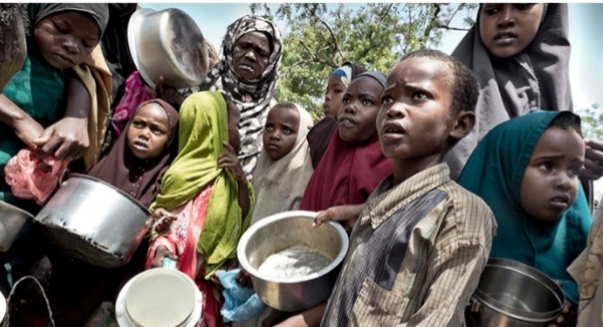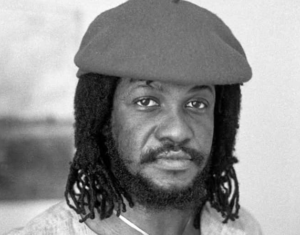Nigeria And Her Ravaging Hunger.
5 min read
By Ejike Anyaduba.

Nigeria relishes the moniker – the giant of Africa – which she blazons like an armorial bearing. With enormous resources and a population of about 250 million people (Professor Lumumba, the Kenyan lawyer and activist, thinks she is more than that figure) she can afford to boast about her giant status.
But that is not enough. Nigeria accounts for one sixth of Africa’s population which stands at about 1.4billion. This population has a chance of growing more if nothing catastrophic happens by way of natural disaster or a split as was the case with Sudan – erstwhile Africa’s largest country until the secession of South Sudan in 2011.
Periodic mass death arising from Boko Haram insurgency, invasion of Fulani herdsmen, violent ethnic eruptions, unknown gunmen attack, carnage on the farms, mass death on the highway, shooting in the cathedral, jungle justice on the innocent, gang (cult) war, air crashes and road mishaps et al may threaten, but not enough to depopulate her. She had survived worse situation – an internecine war that sunders countries and leaves them tottering endlessly on the brink of collapse. But Nigeria is unwittingly up in arms against hunger which is not advised. It is going to be a war that will smoke the giant out of battlement and render her woozy in defeat.
The closest Nigeria got to a “war” with hunger and lost was during the civil war when Biafra was completely blockaded and exposed to starvation. At the time, access to Biafra by the International Red Cross for relief materials was outrightly refused by the Nigerian government, insisting it was a subterfuge to ferry arms into the secessionist state through Wharton’s Super Constellations, flying down from Lisbon. In the alternative, Nigeria proposed a land corridor, some point south of Awgu, Enugu state, through her Foreign Affairs minister, Okoi Arikpo.
But the proposal was rejected by the Biafran government for two reasons. One, it was obscured by problems of definition. Two, there was the fear of being caught on the hop. The result, more debilitating hunger and escalation of kwashiorkor – a protein-deficiency disease that wasted generations of Biafran children. It can be pointed with justice that it was the deviousness of weaponizing hunger that made Biafra lose the war and not because she was outgunned or had less strength than Nigeria.
Sadly, something similar is playing out again. Nigerians are exposed to a hunger that is graceless, dehumanizing, sordid, and can make an otherwise thoughtful person to scoff at an advice against a plunge into the lagoon. The criminal impoverishment of Nigerians today is akin to what Marie Corelli insists robs a man of self-respect and causes him to “slink along the street vaguely abashed, instead of walking erect among fellow men in independent ease”.
It may seem an exaggeration, but not much of one, to say that a Nigerian is not as unfazed by poor leadership as he is by mass hunger. A Nigerian is a happy person and hardly wallows in self-pity or spends time regretting a troubled past. He cares less about what goes on at the decision table insofar as those on the table can provide him with basic life’s needs. He is apt to shrug off a grim situation and trudges on in hope of a better tomorrow. A Nigerian is a happy-go-lucky and often considered among the least depressed people in the world.
However, the debilitating hunger has changed all that and expanded the frontiers of crime beyond perfunctory security check. Many a Nigerian lives, precarious life, scrounging food for survival. A lot more who depend on daily toil for survival are fast turning into beggars. They have been pushed into shanties, under bridges, and forced to ply their trade on walkways because of exorbitant rent. It may seem not very useful to characterize the life of a beggar as inspiring no confidence and totally bleak.
But the future of an average Nigerian has gone bleak under the present government. The devil-may-care attitude of the government to the hardship in the country has debased her citizens and rendered them incapable of decent living. But it is the careless statement of those expected to provide leadership, but who do not, that will quicken her slip into avoidable crisis.
Just the other day the Senate President at the height of the biting fuel crisis advised Nigerians to reduce the number of cars they use. As if that was not enough, he again advised the hapless citizens to help themselves by seizing every opportunity to eat any free food. The same Akpabio had insisted around August this year that the senate would approve the purchase of private jets, not jet, for the President regardless of the state of the economy.
It is unfortunate how unconcerned some of the leaders can be about the hardship in the country. How does reducing the number of cars by those who have more than one help the cause of the silent majority who are scrounging for food? Is fuel scarcity the problem or its high cost that affects everything? Where is the free food he advised Nigerians to help themselves to? Who cooks it? How much of the sacrifice are those of them in government making? Why must the President fly two private jets in the face of aggravated hunger?
It is becoming increasingly clear to Nigerians that their leaders are not thinking about them. In what would seem a populist position, former Rivers State Governor and immediate past Minister for Transport, Chibuike Amaechi urged the youths to go into the streets to protest the high cost of living. “I’m angry with the citizens. I have said it several times. You can see a group of people stealing your money, impoverishing you, you cannot buy fuel and anything.”
Amaechi may be right in condemning the seeming complacent attitude of Nigerians to the raging hunger, but was he better in his time? Perhaps he needs to be reminded that constructing 284 kilometer Nigeria – Mardi (Niger) when some geopolitical zones within the country had none is equally impoverishing.
Truth is that the hunger in the land is getting out of hand and there are traces of marasmus already. Its unremitting discomfort has continued to stretch the patience of Nigerians and may snap in violent eruptions if nothing is done to arrest it. After all it is said that a hungry man is an angry man.
*Ejike Anyaduba, a commentator on public issues writes from Abatete, Anambra State





